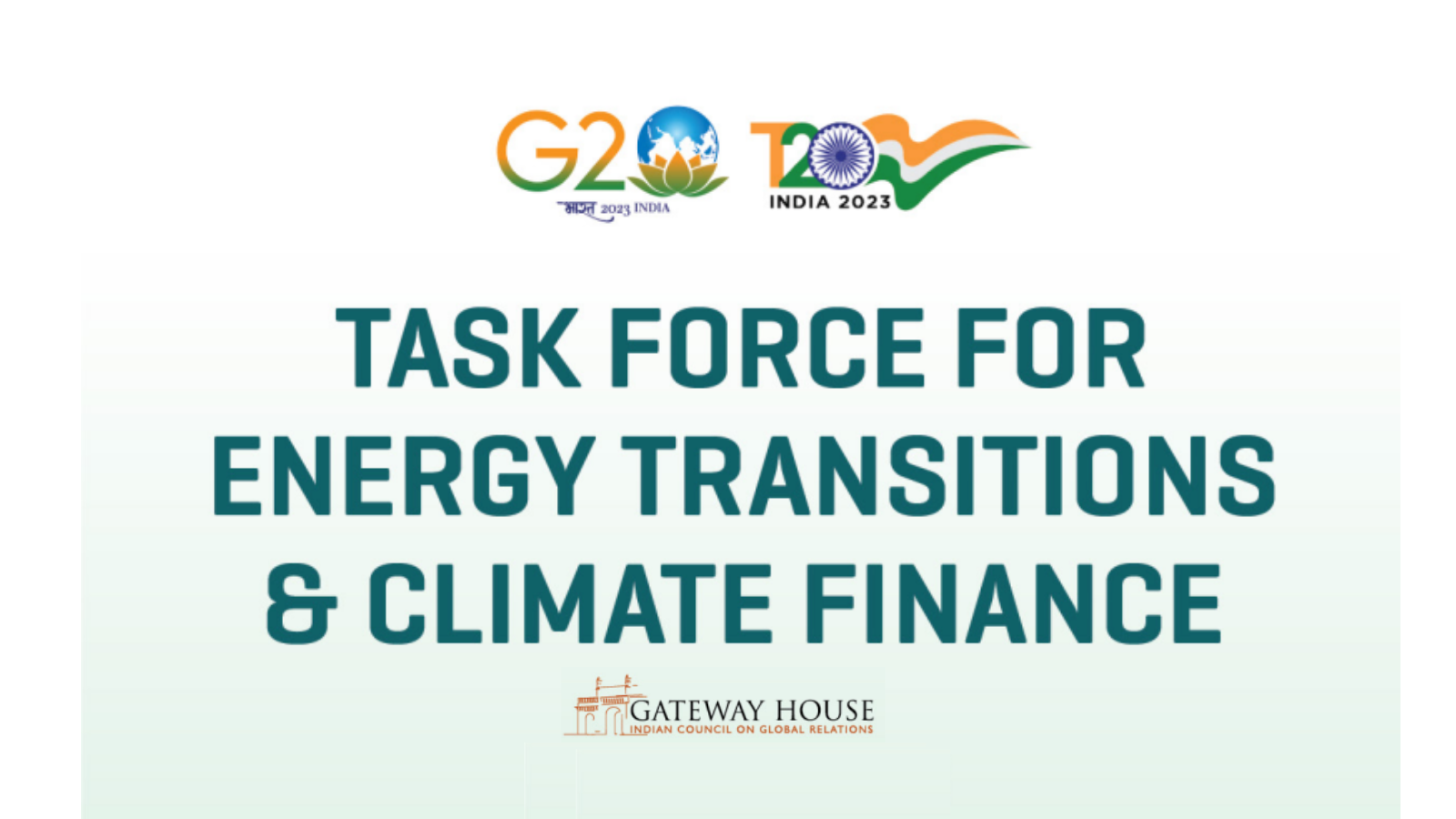G20 Energy Transitions and Climate Finance Task Force Report

India is at the helm of the G20 presidency since the 1st of December 2022 for the duration of a year, with energy transition and climate finance being key topics on its agenda. In this context, the Gateway House put in place a G20 Energy Task Force to which Ifri’s Research Fellow, Diana-Paula Gherasim, participated.

The Task Force looked into policy measures to address energy poverty, the necessary steps to encourage the use of green energy and sustainable technologies and strategies to help generate the financial resources needed to nurture green technologies. Harnessing the power of public procurement to boost the rollout of critical new technologies that drive decarbonization has been among the flagship proposals of this task force, together with the creation of a Global Climate Finance Agency to provide a cost-effective hedging mechanism, a first loss facility and support new business models for emerging technologies. Our research fellow particularly worked on the topic of Energy Transitions and insisted on the role of G20 as a leading force for climate action and the role of renewable energy sources in overcoming the energy crisis, underlining that the focus of G20 must be placed on massively deploying clean energy supplies and energy efficiency programs, decarbonizing energy intensive industries, upskilling for the green economy and building a strong cooperation basis for international green trade.
> read the part focusing on the Energy Transitions and the full report G20 Energy Transitions and Climate Finance Task force Report

Available in:
Regions and themes
Share
Related centers and programs
Discover our other research centers and programsFind out more
Discover all our analysesAI, Data Centers and Energy Demand: Reassessing and Exploring the Trends
The information and communication technologies sector today accounts for 9% of global electricity consumption, data centers for 1-1.3%, and artificial intelligence (AI) for less than 0.2%. The growing energy demands of cloud services first, and now AI workloads (10% of today’s data centers electricity demand), have exacerbated this trend. In the future, hyperscale data centers will gain shares amongst all kinds of data centers and AI will probably account for around 20% of data centers electricity demand by 2030.
Unlocking India’s Energy Transition: Addressing Grid Flexibility Challenges and Solutions
India is rapidly scaling up its renewable energy (RE) capacity, adding 15–20 GW annually, but the ambitious goal of 500 GW of non-fossil capacity by 2030 is at risk unless the pace accelerates.
Europe’s Black Mass Evasion: From Black Box to Strategic Recycling
EV batteries recycling is a building block for boosting the European Union (EU)’s strategic autonomy in the field of critical raw minerals (CRM) value chains. Yet, recent evolutions in the European EV value chain, marked by cancellations or postponements of projects, are raising the alarm on the prospects of the battery recycling industry in Europe.

The New Geopolitics of Energy
Following the dramatic floods in Valencia, and as COP29 opens in Baku, climate change is forcing us to closely reexamine the pace—and the stumbling blocks—of the energy transition.









